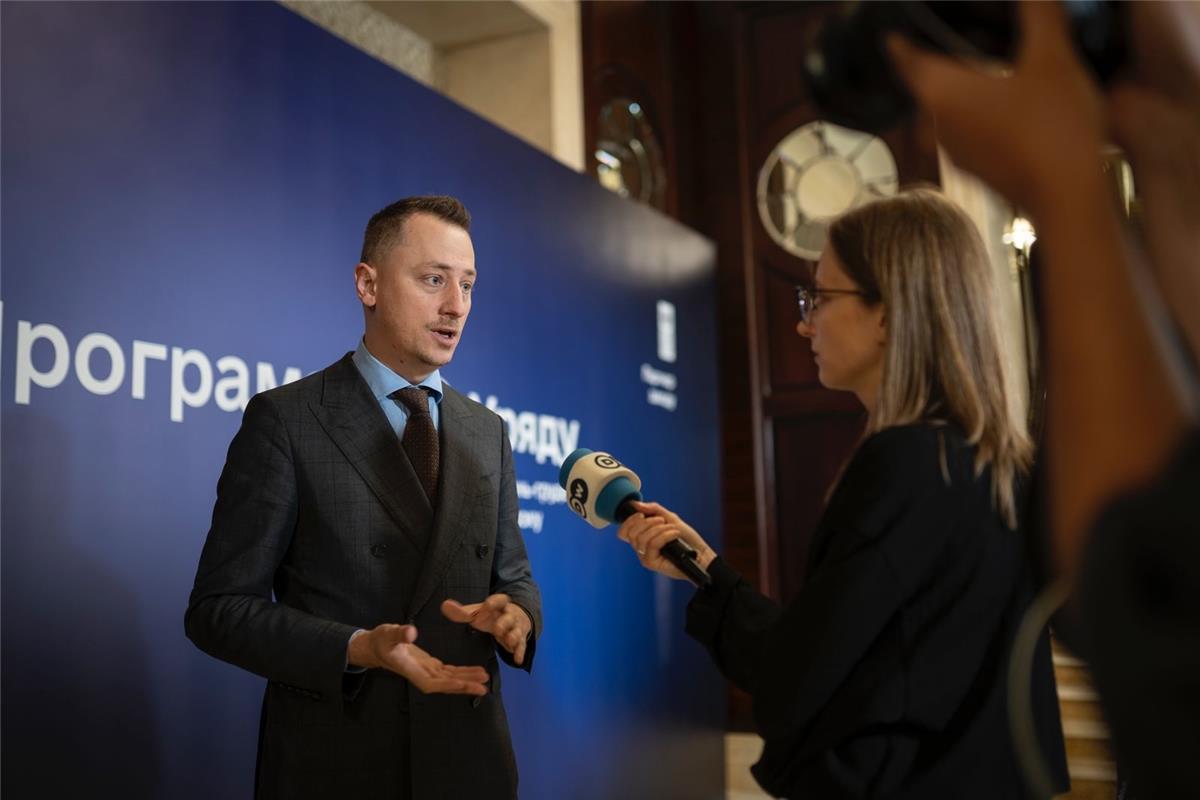On August 18, Ukrainian Prime Minister Yuliya Svyrydenko presented the Government Action Programme for 2025–2026. The programme is based on four pillars or strategic directions — security, economy, human dignity, and reconstruction. Based on these, 12 priorities were identified: security and defense, European integration, anti-corruption, macrofinance and reforms, business, social policy and recovery of frontline territories, veterans policy, healthcare, education and science, reconstruction, culture, and winter stability.
One key focus is economic development through support for business and investment. Among the government’s priorities is comprehensive support for the private sector.
By the end of 2026, the government plans to attract over 5 billion euros of international investment for infrastructure and industrial projects. Financing will come through intergovernmental agreements (UIF), international financial organizations, bilateral agreements (including with Switzerland, France, South Korea), and public-private partnership projects.
Another 10 billion UAH will be invested in industry and industrial parks, including equipment and funding for 15 projects, including within the “Industrial Ramstein” initiative. At least three investment projects are planned under the U.S.-Ukraine Investment Fund. Preparations are in the final stage for launching recovery funds with European capital (Recovery Facility, Ukraine Fund), with a budget of 500 million euros by the end of 2025.
Within the “Made in Ukraine” policy, 55 billion UAH is allocated to finance businesses and 5 billion UAH for compensation of capital investments by the end of 2026. A moratorium on business inspections will last up to five years. Over 200 permit procedures will move to a declarative principle, and 60 will be canceled or simplified.
Exports of high value-added products will increase by 5% compared to the 2024 baseline. Privatization will provide over 12 billion UAH in revenue by the end of 2026, including the sale of sanctioned assets.
To promote Ukrainian agricultural products in foreign markets, memoranda will be signed by the end of 2025 to support the opening of Grain Ukraine and Food from Ukraine agro-hubs. Land demining will continue as part of the state compensation programme, with 3 billion UAH allocated by the end of 2026. To accelerate the land reclamation reform, legislation will be updated by the end of 2025, and a national irrigation construction project will be launched.
During the “Economy for People. Development” session, Minister of Economy, Environment, and Agriculture of Ukraine Oleksiy Sobolev presented the vision for the development of three interconnected areas of state policy — economy, environment, and agriculture. According to him, the new institutional architecture allows for comprehensive thinking and faster action.
“We combined three key areas of state policy within one ministry. This allows us to make comprehensive decisions, accelerate reforms, balance stakeholder interests, and more effectively attract investment, including in environmental protection and agricultural projects. By the end of 2026, we aim to implement initiatives with over 5 billion euros of external financing. Among our priorities are cross-cutting deregulation and digitalization. We already see synergy across all three areas and will continue optimizing processes,” said the Minister.
Oleksiy Sobolev also presented eight priorities of the Ministry of Economy, Environment, and Agriculture, which arise from the overall government strategy: business development, industrial policy, deregulation and digitalization, sustainable development and resource policy, human capital, investment, export, and European integration.





















